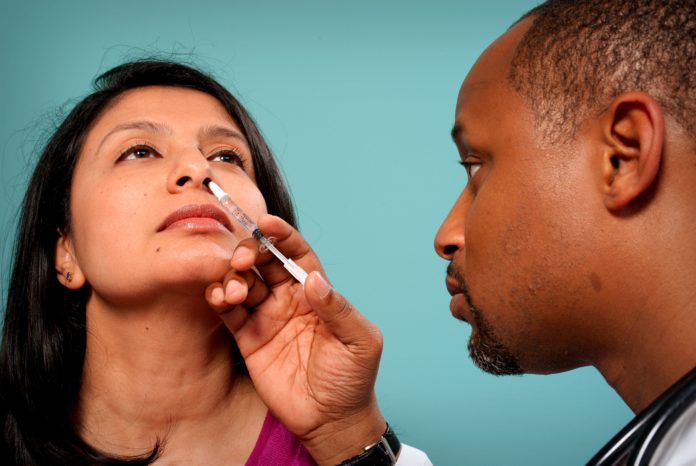Study confirms safety and efficacy of sketamine nasal spray anti-depressant in treating depression
New research supports the effectiveness and safety of esketamine nasal spray antidepressant in treating depression in people who have not responded to previous treatment.
The research was published online today in the American Journal of Psychiatry. This study is one of the key studies that led to the recent Food and Drug Administration (FDA) approval of esketamine nasal spray, in conjunction with an oral antidepressant, for use in people with treatment-resistant depression.
Depression is common, and as many as one-third of people with depression are considered treatment resistant–not finding relief from symptoms even after trying several antidepressants. Esketamine offers a new fast-acting treatment for people that have not responded to other depression treatments.
Depression is common, and as many as one-third of people with depression are considered treatment resistant–not finding relief from symptoms even after trying several antidepressants
Michael Thase, M.D., one of the study authors, described the study during a briefing held during the Annual Meeting of the American Psychiatric Association. The phase 3, double-blind, active-controlled study was conducted at 39 outpatient centers from August 2015 to June 2017 and involved nearly 200 adults with moderate to severe depression and a history of not responding to at least two antidepressants. Participants were randomly assigned to one of two groups. One group was switched from their current treatment to esketamine nasal spray (56 or 84 mg twice weekly) plus a newly initiated antidepressant (duloxetine, escitalopram, sertraline, or extended-release venlafaxine). The other group was switched from their current treatment to a placebo nasal spray in combination with a new antidepressant.
The improvement in depression among those in the esketamine group was significantly greater than the placebo group at day 28. Similar improvements were seen at earlier points in time.
Adverse events in the esketamine group generally appeared shortly after taking the medication and resolved by 1.5 hours later while patients were in the clinic. The most common side effects included dissociation, nausea, vertigo, dysgeusia (distortion of the sense of taste) and dizziness. Seven percent of patients in the esketamine group discontinued the study due to side effects.
“This trial of esketamine was one of the pivotal trials in the FDA’s review of this treatment for patients with treatment resistant depression. Not only was adjunctive esketamine therapy effective, the improvement was evident within the first 24 hours,” Thase said. “The novel mechanism of action of esketamine, coupled with the rapidity of benefit, underpin just how important this development is for patients with difficult to treat depression.”


